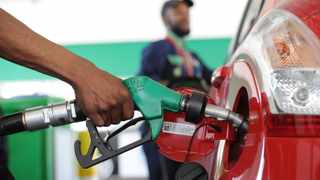A poll carried out among 20 economists and financial analysts revealed that 80% expect a petroleum price hike in the energy regulation boards September price review. The remaining 20% considered no change at all. Africa’s second largest copper hotspot Zambia effective January 2022 shifted to a monthly price review after its Ministry of Finance initiated a reorganization of its fiscal purse in a subsidy removal program aimed at maximizing economic production possibilities.
READ ALSO: With the expiration of tax waivers Africa’s copper hotspot, petroleum prices expected 11% higher
The ERB price review comes up on the last day of the month and with the Ministry of Energy’s announcement of expiration in petroleum tax waiver as at 30 September, despite an average ebb in international crude prices and Kwacha appreciation, pump prices ruling for the month of October are expected to climb by a minimum of 11%.
The International Monetary Fund board approved a $1.3 billion extended credit facility aimed at supporting the Southern African nations restoration of fiscal fitness. The Zambian authorities will seek to maximize its resources through allocation to sectors that will cushion the economy from adverse effects of fiscal fragilities and other shocks.
Given the currency stability following increased confidence in the Zambian economy post IMF bailout and the softening global demand weighing crude prices, the copper producer could benefit from reprieve in fuel prices in the medium term.

Energy reform hints sought in Friday’s budget
Minister of Finance Dr Situmbeko Musokotwane will present his second budget under the new dawn government which is also expected to provide clarity on energy sector reforms for 2023.
The government is currently working on enhancing the fuel supply chain as earlier mentioned by Energy Minister Peter Chibwe Kapala. He further intimated that Indeni will commence blending ethanol from local sources such as Sunbird Energy (that makes ethanol from cassava) and Zambia Sugar (which produce ethanol from molasses) with the aim of domesticating part of the fuel supply chains starting December 2022.
The Southern African nation will now only be dealing in finished goods importing and blending as opposed to processing so as to not only reduce costs but also manage oil supply chain inefficiencies which have historically been brought on by overcrowding of middlemen in the value chain.
These interventions should moderate the current price elevations whose clarity is expected in the 2023 budget to be presented this week.
The Kwacha Arbitrageur

